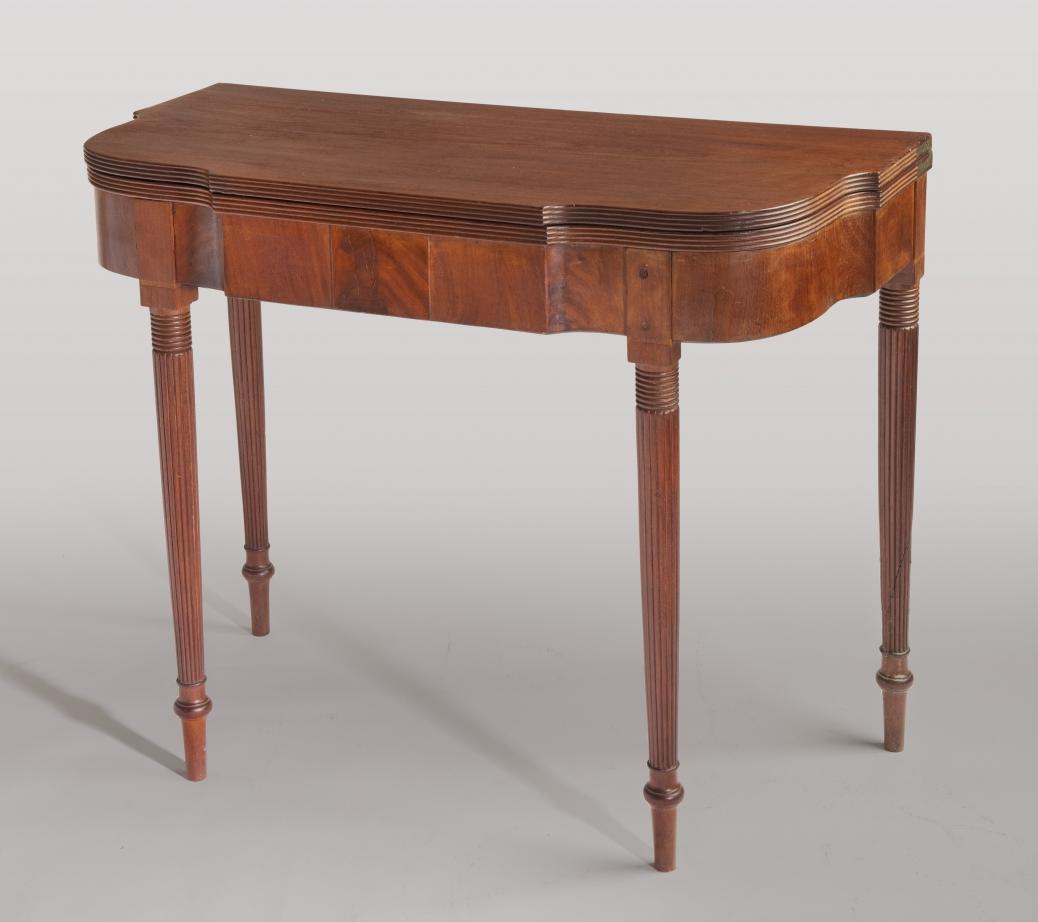Card table
Odessa, Delaware
1805-1815
Maker
Probably John Janvier Jr. (1777–1850)
Measurements
29 3/8 in x 35 3/4 in x 17 5/8 in
Materials
Mahogany; white cedar (fixed rear rail, laminated frame), ash (rear swing rail)
Credit Line
Historic Odessa Foundation
Accession Number
1975.32
Inscription
An address label of Miss Margaret J. Hort is attached to the underside of the fixed top.
Condition Notes
The right front leg stile or panel has two screw repairs that now hold the outside bridle of the leg joint to the frame. The inside bridle has broken off. The left front leg is screwed into place from the rear to stabilize a split. The lower part of the right rear leg has split in two and has been repaired. The bottom edge of the frame is now chamfered and darkened with stain. It appears to have had crossbanding originally, which continued across the rear legs, where the banding remains.
Provenance
Ex coll. Miss Margaret Janvier Hort.
Comments
The decorative features of this card table identify it as a product of the greater Philadelphia region, including Delaware. Regional traits include the shape of the table frame and top, a reeded edge to the table leaves, reeded legs with rings at the top and a wide ring above a tapered foot, and the mix of woods. Geographical placement within that large area requires additional information beyond physical evidence. Its Janvier attribution derives from its ownership by Miss Hort, who specifically cited John Jr. on the 1975 bill of sale.
A feature of this table that may one day link it to other work is the central panel of crotch-grain mahogany. It is superimposed on the tamer mahogany veneers decorating the front of the frame or skirt. Having two layers of veneer is very rare.
Bibliography
Hotchkiss, “Odessa Furniture Returns,” 105.
Hotchkiss, “Wilson-Warner House,” 887, pl. III.
Donald L. Fennimore, “Egyptian Influence in Early Nineteenth-Century American Furniture,” Antiques 137, no. 5 (May 1990): 1193–94, pl. 2.
Zimmerman, A Storied Past, 104-105.
